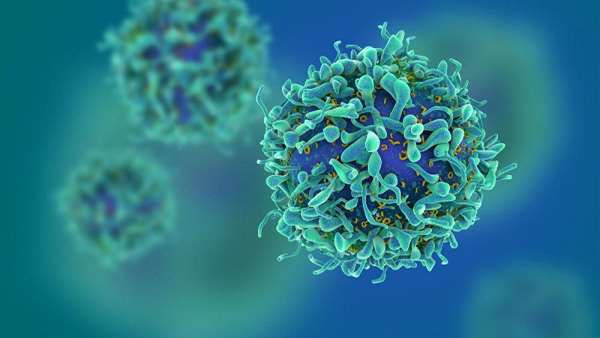FDA Clears the IND for UCARTCS1, the First Allogeneic CAR-T to Treat Multiple Myeloma Patients
UCARTCS1 is based on a tailored manufacturing process developed by Cellectis, which removes both the CS1 antigen and TCR from the T-cell surface using TALEN® gene editing technology, before adding the CS1 CAR construct.
UCARTCS1 is based on a tailored manufacturing process developed by Cellectis, which removes both the CS1 antigen and TCR from the T-cell surface using TALEN® gene editing technology, before adding the CS1 CAR construct. This approach has both clinical and operational benefits: the UCART is designed to have a lymphodepleting effect, and the CAR T-cell cross reaction is suppressed, allowing for successful manufacturing.
UCARTCS1 is the first allogeneic CAR-T therapy for MM to enter clinical development. This milestone reinforces Cellectis’ leadership in the space, as it represents the fourth TALEN® gene-edited allogeneic CAR-T product candidate developed by Cellectis to be approved for clinical trials following UCART191 for ALL patients, UCART123 for AML patients and UCART22 for B-ALL patients. The Phase 1 of the MUNDI-01 study is designed to assess the safety and tolerability at increasing dose levels of UCARTCS1 in patients living with MM.
“The last quarters have been very productive for Cellectis’ UCARTCS1 product candidate. We successfully manufactured and released GMP batches of UCARTCS1, filed an IND and secured approval from the FDA to start the MUNDI-01 Phase 1 clinical study,” said Dr. André Choulika, Chairman and CEO of Cellectis. “This is the 4th time in 4 years that Cellectis demonstrates excellence with an allogeneic product candidate. It further demonstrates the strength of our innovation, our manufacturing process and our execution, as we are eager to bring the first allogeneic multiple myeloma CAR T-cell treatment to patients.”
We anticipate the clinical research to be led by Dr. Krina Patel, Principal Investigator, Assistant Professor, Department of Lymphoma/Myeloma, Division of Cancer Medicine at the MD Anderson Cancer Center in Houston, Texas. We plan to have two additional sites enrolling patients for this clinical study: Weill Cornell Medicine under the leadership of Dr. Ruben Niesvizky, Director of the Multiple Myeloma Center at New York Presbyterian Hospital-Cornell Medical Center and Hackensack Meridian under the supervision of Dr. Andre Goy, Chairman and Director of John Theurer Cancer Center (JTCC) at Hackensack University Medical Center.
About UCARTCS1
UCARTCS1 is an allogeneic, off-the-shelf, gene-edited T-cell product candidate designed for the treatment of multiple myeloma (MM). CS1 (SLAMF7) is highly expressed on MM tumor cells and is an attractive target because there is strong evidence of tumor response to monoclonal antibody treatment targeting it. The limitation so far has been the presence of the CS1 target on the surface of T-cells, which has hindered the access to CAR-Ts and bispecific antibodies. As an example, the introduction of a CAR construct in T-cells induces cross T-cell reaction and leads to their self-destruction during manufacturing. Cellectis solved this issue by using TALEN® gene editing to knock-out the CS1 gene from T-cells before introducing the CS1 CAR construct.
The UCARTCS1 MUNDI-01 clinical trial is a Phase 1 dose-escalation and dose-expansion study to evaluate the safety, expansion, persistence and clinical activity of UCARTCS1 (allogeneic engineered T-cells) in patients with MM. Dose level 1 will be administered at 1x106 UCARTCS1 cells per kilogram, and dose levels 2 and 3 will be administered at 3x106 and 9x106, respectively. The Dose Limiting Toxicity (DLT) period is 28 days in concordance with a 28-day staggering for the first 2 patients at each dose level.
MM is a cancer that forms in a type of white blood cell called a plasma cell, which helps the body to fight infections by making antibodies that recognize and attack germs. MM causes cancer cells to accumulate in bone marrow, where they crowd out healthy blood cells. The American Cancer Society estimates that 32,110 new cases of MM will be diagnosed and 12,960 deaths are expected to occur in the U.S. in 2019.
The manufacturing process of Cellectis’ allogeneic CAR T-cell product line, Universal CARTs or UCARTs, yields frozen, off-the-shelf, non-alloreactive engineered CAR T-cells. UCARTs are meant to be readily available CAR T-cells for a large patient population. Their production is industrialized with defined pharmaceutical release criteria.
Information about ongoing clinical trials is publicly available on dedicated websites, such as: www.clinicaltrials.gov (U.S.) and www.clinicaltrialsregister.eu (Europe).





ارسال به دوستان